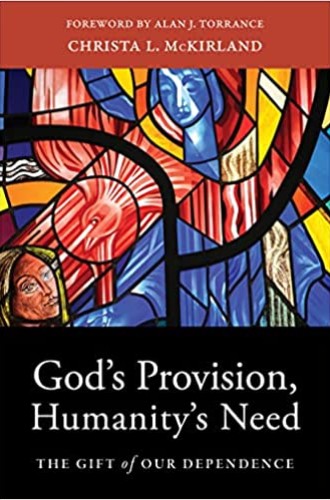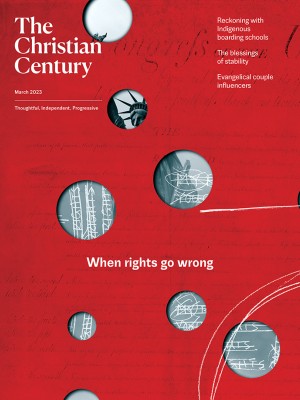Is relating to God a fundamental need?
Biblical theologian Christa McKirland argues that it is.
Humans need a “second-personal” relationship with God: this is the main claim of God’s Provision, Humanity’s Need. It reminds me of the evangelical emphasis on a personal relationship with Jesus Christ. Christa McKirland argues that unless one relates to God “as a subject, not as a list of facts,” they will experience harm. But McKirland’s aim is not to convince unbelievers that they need Jesus to avoid damnation. Rather, she joins a long tradition of Christian thinkers working through just how it is that humans relate to God. Her inquiry reminds me in some ways of Friedrich Schleiermacher, who famously described Christian piety as “the consciousness of being absolutely dependent, or, which is the same thing, of being in relation with God.”
McKirland’s prolonged engagement with scripture will speak to a biblically engaged Christian audience. Save a single chapter about the theology of Kathryn Tanner, she develops her position by way of the Hebrew Bible and the New Testament. She provides a robust understanding of divine dependence through a deeply biblical framework, situating herself squarely as a biblical theologian. But the burden of the book is not only to demonstrate that the Bible supports a vision of human life as deeply dependent upon God. She also aims to furnish philosopher Garrett Thomson’s work on “fundamental need” by reading it theologically.
Read our latest issue or browse back issues.
She begins by defining fundamental need in conversation with analytic philosophy. Fundamental needs are ones that are unavoidably necessary in all contexts and without which one cannot flourish. For example, I need clean water to drink, and there is just no avoiding this need. Further, this need does not derive from anything else. In order to have clean water, I might also need a means to filter the water—but the filter is an instrumental need rather than a fundamental need. Clean water itself is the fundamental need, as I need clean water or I’ll die.
According to McKirland, the same goes for God’s presence: “(1) We have an inescapable interest to flourish. (2) We fundamentally need a second-personal relation to God to flourish. (3) When that need is not met, we are therefore harmed.” She does not provide much in the way of constitutive descriptions of harm and flourishing, aside from mentioning that flourishing is characterized by love of God and neighbor. I was left wondering about what harm would look like for those who do not relate second-personally to the Christian God. As this is McKirland’s debut book, I am hoping that she will pursue this question—as well as other unanswered questions regarding interfaith engagement, practical theology, and ethics—in her future work.
What McKirland does well is provide a sustained engagement with scripture, biblical scholarship, and other biblical theologians to develop her thesis. Whereas in the Hebrew Bible God’s personal presence is displayed through motifs such as temple, tabernacle, bread, and water, in the New Testament Jesus comes to be that presence for the new covenant community. Yet Jesus depends on the Spirit for communion with the Father, and he offers that communion to the rest of humanity. This communion is the ultimate telos of human beings, and it is deepened as humans develop greater relational dependence on God. In other words, the need for God’s presence goes further than does a physical need like water, for having this second-personal relationship with God is the end towards which humans were created.
McKirland is ultimately developing what she calls a “pneumachristocentric anthropology,” one that explains how it can be that humans are so vitally related to Christ and to the Spirit. She maintains the traditional view of Christ’s two natures—divine and human—while showing that Jesus also depends on God’s presence. The Spirit then allows humans to participate in Jesus’ own dependence on (or union with) the Father.
In short, McKirland provides a thick and robust description of what it means for humans to need God, how scripture witnesses to this fundamental need, and what a deeply christological and Spirit-attuned picture of theological anthropology looks like. Her extensive turn to scripture to provide the contours of a needs-based, christologically grounded anthropology will be satisfying, perhaps even edifying, for many Christian readers. It is written with the clarity and precision of the analytic theological genre, making it a digestible read for those wanting to think more deeply about connections between the Bible and the God-human relationship.






